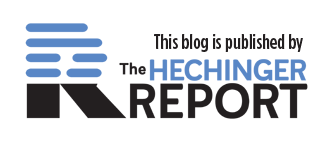A May 28, 2013 blog post from the Michael and Susan Dell Foundation by Micah Sagebiel notes that after a decade of collecting and analyzing education data, since the No Child Left Behind Act of 2001, that classroom instruction is no better for it. So far, all this education data has mostly been used for “accountability” purposes, that is, to show how bad teachers are or how little students are learning.
The foundation argues that the data community needs to rally behind producing data that teachers will want to use. For example, daily reports that help summarize what kids have and haven’t learned and ways to tailor lessons or homework to help students learn what they don’t yet understand.
Presumably, that would be helpful. But when I think of data-driven ways to improve instruction, I think more of clinical studies. Just like academic doctors study whether it’s better to give a kid antibiotics or let an ear infection clear on its own, I’d like to see similar studies in education. I suspect, in education, that there are several good ways to teach a particular topic, such as how to do long division or how to teach Shakespeare. If I were a new teacher, I’d like to have, say, the five best ways described for me, maybe with a video example of each one. And it would be fascinating to know what kinds of student populations responded well to each of the methods.
Is anyone doing this kind of clinical trial work in education with control groups?



